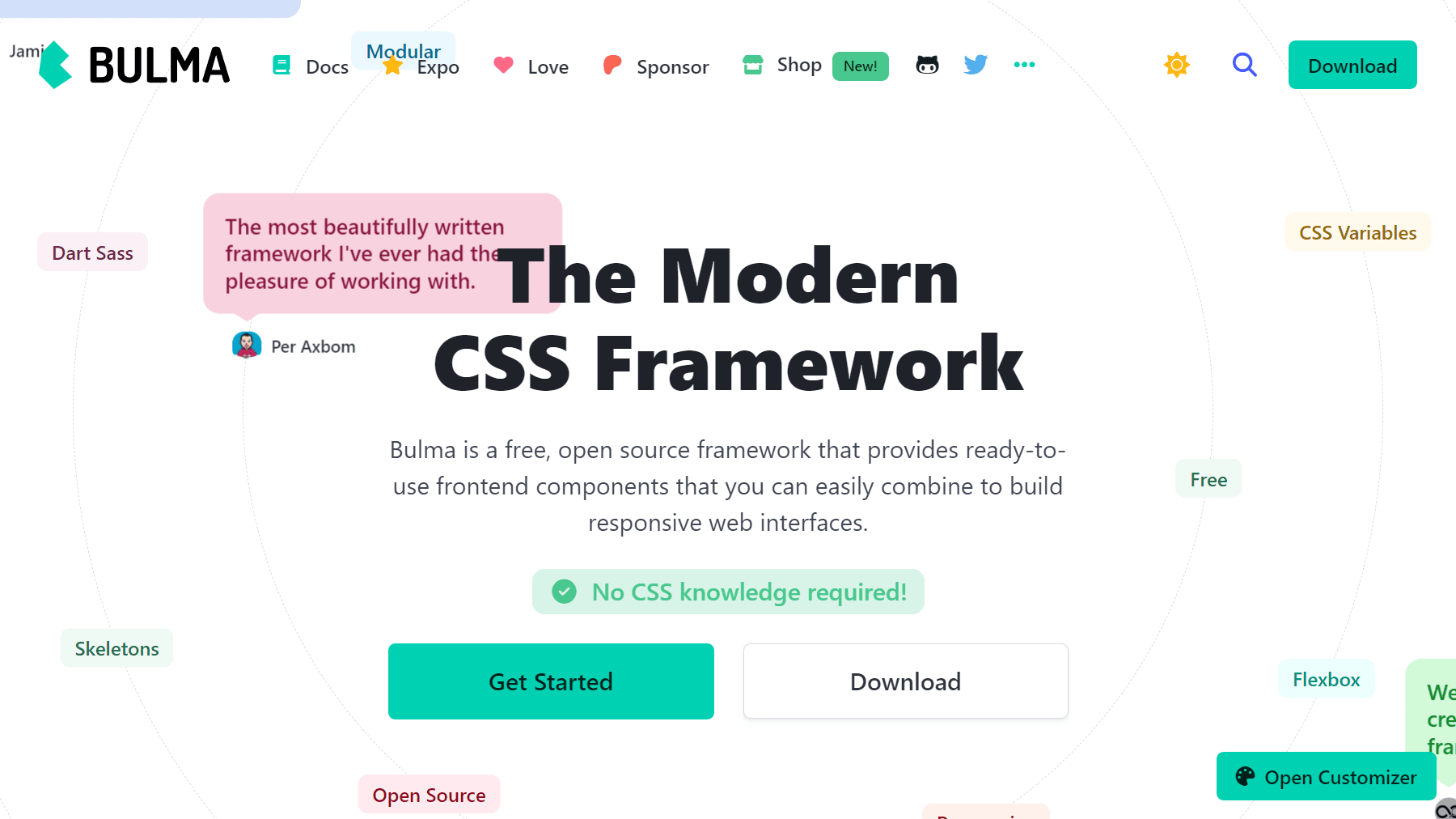Bulma

About Bulma
What is Bulma?
Bulma is a free, open-source CSS framework based on Flexbox. It provides developers with a set of ready-to-use frontend components to build responsive web interfaces quickly and efficiently. Bulma's simplicity, modularity, and flexibility make it an excellent choice for both beginners and experienced developers.
How Bulma Works
Bulma works by offering a collection of CSS classes that simplify the process of creating responsive layouts. It includes components like grids, buttons, forms, tables, and more. Developers can easily integrate Bulma into their projects by including the Bulma CSS file and using the predefined classes to style their HTML elements. Bulma's modular structure allows developers to import only the components they need, optimizing performance and load times.
What Problem Bulma Solves
Bulma addresses the challenge of building responsive, modern web interfaces without writing extensive CSS from scratch. Traditional CSS frameworks can be complex and difficult to customize. Bulma simplifies the process with its intuitive class names, Flexbox-based structure, and modular approach, making it easier to create consistent and responsive designs across different devices.
Bulma Features
Flexbox-Based
Built on Flexbox, providing a flexible and efficient way to design responsive layouts.
Responsive Design
Ensures web interfaces look great on all devices, from desktops to mobile phones.
Modular Components
Includes a wide range of pre-styled components like grids, buttons, forms, and more.
Easy to Customize
Simple to override default styles with custom CSS or Sass variables.
Open Source
Free to use and modify, with a large community of contributors.
No JavaScript Required
Focuses solely on CSS, allowing seamless integration with any JavaScript framework.
Pricing
Bulma is free and open-source, making it accessible to everyone. There are no costs associated with using Bulma in personal or commercial projects.
Pros and Cons
Pros:
Easy to use with intuitive class names.
Fully responsive and flexible layouts.
No JavaScript required, focusing purely on CSS.
Free and open-source.
Modular design for optimized performance.
Cons:
May require additional customization for complex projects.
Limited advanced components compared to other frameworks.
Common Questions
How do I get started with Bulma?
Visit the Bulma website, download the CSS file, and include it in your project. Use the documentation to learn how to apply Bulma classes to your HTML elements.
Is Bulma free to use?
Yes, Bulma is completely free and open-source.
Can I customize Bulma's styles?
Yes, you can customize Bulma by overriding its default styles with your own CSS or by using Sass variables.
What kind of support does Bulma offer?
Bulma offers extensive documentation on its website and has a large community of users who contribute to its development and provide support.
Conclusion
Bulma is an excellent choice for developers looking to create responsive, modern web interfaces quickly and efficiently. Its Flexbox-based design, modular components, and ease of use make it a powerful tool for both beginners and experienced developers. Whether you're building a simple website or a complex web application, Bulma provides the flexibility and features you need to succeed.